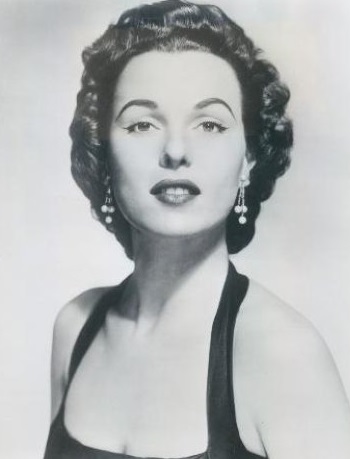(RNS) Young Bess Myerson wanted a piano.

Bess Myerson in 1957.
But her father, a house painter, could not afford to buy her one. The Myersons were that species of Jew that is becoming increasingly rare in New York these days — working-class, Yiddish-speaking, socialist-leaning, living in the Sholem Aleichem co-ops in the Bronx.
And so, blessed with beauty and charm, Bess of the Bronx entered the Miss New York City pageant. She figured that if she won the pageant, she would use the $5,000 prize to purchase the piano and to study music. She won the pageant, and then she went on to Atlantic City to enter the Miss America pageant, which she also won. And the rest, as they say, is history — American Jewish history. Bess Myerson would be the first, and to date, the only Jewish woman to become Miss America.
This week, the world learned that Bess Myerson had died on Dec. 14, at the age of 90. She died in relative obscurity, having lived through public service, political ambitions and various disappointments. I suspect that not a few people were surprised that she had still been alive.
Bess Myerson: old news, right?
Wrong.
Her life still matters. Because it is about American Judaism.
Remember the date that Ms. Myerson was crowned Miss America — Sept. 8, 1945. It was only a few days after Japan surrendered, bringing World War II to a close. The concentration camps had just been liberated. Anne Frank, the other iconic young Jewish woman of that time, died in Bergen-Belsen in March 1945. In September 1945, emaciated Jewish survivors were just beginning to shed their striped concentration camp uniforms.
And yet, in Atlantic City, Bess Myerson was parading in a swimsuit. In Europe, there was Jewish death. In America — Jewish life. Bess Myerson represented the resurrection of the Jewish body — the journey from degradation to beauty.
Remember that piano that Bess had originally wanted? How did the piano become the must-have piece of American Jewish parlor furniture? Pianos not only represented the Jewish longing for high culture. They represented permanence. They were heavy and cumbersome, difficult to move.
And that was their appeal. American Jews may have been on the move, from the Bronx to Westchester, say, but they were not fleeing. Back in Russia, if there was a pogrom you could grab your violin and run. America was different.

Rabbi Jeffrey Salkin is the spiritual leader of Temple Beth Am in Bayonne, N.J., and the author of numerous books on Jewish spirituality. Photo courtesy of Jeffrey Salkin
How different? American Jews should gaze over the Atlantic and see what’s going on with their cousins in France, who are encountering unprecedented waves of anti-Semitism.
Right about now, many French Jews are trying to figure out: How do we move those pianos?
America was different, and is different. Bess Myerson helped make that possible. And that is why she still matters.
(Rabbi Jeffrey K. Salkin is the spiritual leader of Temple Beth Am of Bayonne, N.J., and the author of The Gods Are Broken! The Hidden Legacy of Abraham, published by Jewish Publication Society.)
YS/MG END SALKIN




